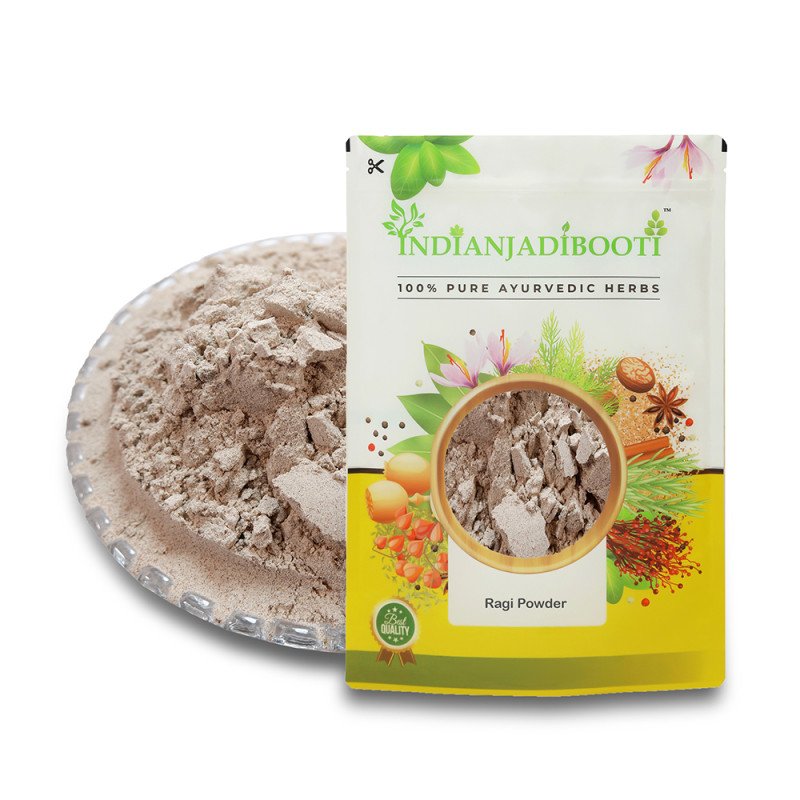
Ragi had taken a back seat in the Indian food and nutrition scene for a long time due to the huge popularity of other cereal crops such as rice and wheat, despite being a highly respected healthy yield in ancient agricultural practices more than 2000 years ago.
Ragi has made a significant comeback as a frontrunner for maintaining optimal health in the last three to four decades, thanks to extensive research and the UN FAO's (United Nations Food And Agriculture Organization) push to incorporate millets into the daily diet to combat malnutrition and a variety of other commonly occurring ailments.
Other Names: Eleusine Coracana, Finger Millet, Maruba Dhan, Madua, Marua, Bhav, Madua, Ragi, Naanchani, Nasne, Nachne, Moothari, Nachni, Mandia, Mandal, Mandhul, Mundal, Madhulika, Mattakam, Nrityakundala, Kezhvaragu, Keppai, Ragulu, Tamidalu, Kodra, Madwa
Fortifies Bone Density:
Finger millet, a great source of natural calcium, helps to strengthen bones in growing children. It also helps to restore optimal bone density in older persons, which aids in the relief of osteoporosis symptoms.
While younger people can eat ragi on a regular basis, middle-aged and older folks must eat calculated quantities of ragi to improve bone health while avoiding gastrointestinal and kidney issues.
Keeps Blood Sugar Levels In Check:
Finger Millet Powder, while high in calories and carbohydrates for quick energy, also contains phytates, tannins, and polyphenols - plant compounds that slow down digestion. Ragi is a helpful addition to a diabetes diet since it lowers high blood sugar levels in people with diabetes. Ragi Powder is also the #1 food of choice for adults for speeding weight reduction and treating other lifestyle conditions such as diabetes and obesity due to its low digestion and high fibre content.
Treats Anemia:
A lack of iron
Every year, anaemia affects tens of thousands of Indian men, women, and children, causing excessive weariness and low productivity.
Ragi is an iron-rich food that can help those who have low haemoglobin levels in their blood, effectively treating anaemia.
Boosts Nervous System Function:
Due to high levels of the amino acid tryptophan, eating ragi in moderate portions on a daily basis helps to improve nerve impulse transmission, activate memory centres in the brain, and soothe the mind.
Ragi aids in the treatment of anxiety and insomnia by maintaining pleasant moods and supporting sound sleep since tryptophan balances the amounts of serotonin, a neurotransmitter.
Augments Heart Health:
Ragi is absolutely free of cholesterol and sodium, therefore those with heart disease can safely consume meals made with ragi flour. Furthermore, an excess of dietary fibre and vitamin B3 or niacin promotes good HDL levels while decreasing dangerous LDL levels. This prevents plaque and fatty deposits in heart arteries, hence increasing cardiac muscle function and heart health.
Ragi For Pregnancy And Lactation:
Ragi grains sprouted overnight and consumed the next morning have numerous health benefits for pregnant and breastfeeding mothers. Ragi's high iron and calcium content makes it perfect for stimulating milk production and balancing hormonal processes in pregnant women and young moms.
3 Comment(s)
Collecting styles go in and out of fashion, Sotheby's watch specialist Jonathan Burford told me in early January. "But when you can pick up something like a [Jaeger-LeCoultre] Gyrotourbillon, which is genuinely rare and valuable and complex, people are inevitably going to gravitate towards that, and some of these have sat unloved for some time." He brought up the Gyrotourbillon without me asking, so it seems we weren't the only ones genuinely enthralled by this watch.
As we look back on the last 60 years of Bond, we figured this weekend was the perfect time to assemble some of our favorite stories on the subject. So put on your best tux, your favorite watch, and mix your favorite drink (shaken, not stirred). This weekend, it's the Bond edition.
The Tank Organic is a seriously unconventional design for Cartier; it still sticks out in spite of the highly unusual shapes Cartier (notably made under Jean-Jacques for <a href="https://git.cloud.leonclassroom.com/hjabirxanthusj" >link</a> Cartier London) had made over the years.
Leave a Comment